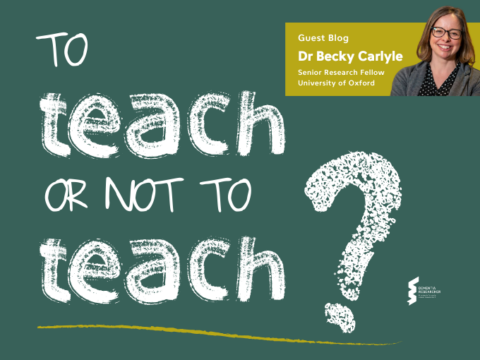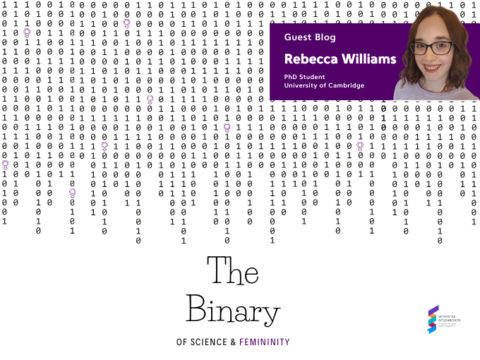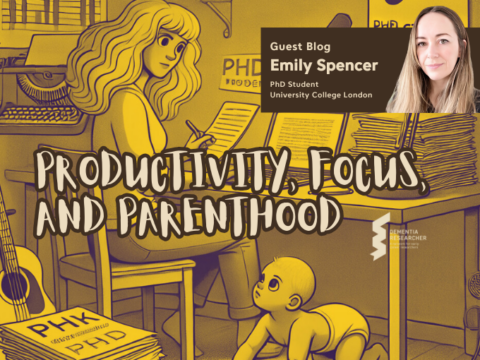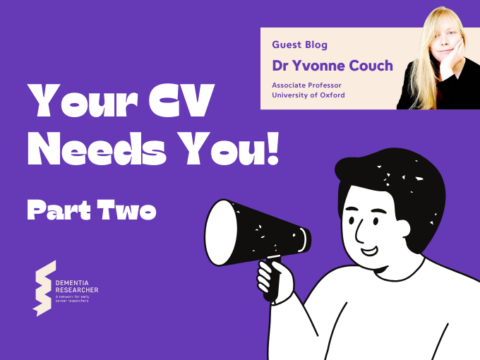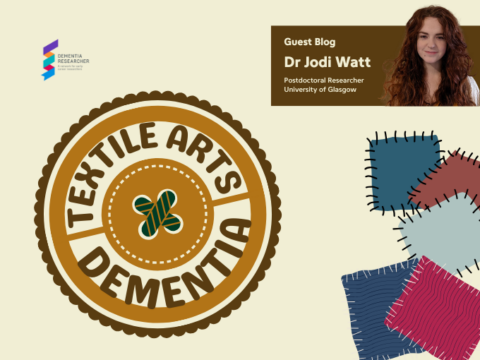Dementia research is growing but there is still a long way to go. Although 850,000 people in the UK are currently living with dementia, set to rise to 1 million by 2025 the area still lacks behind other fields such as cancer research when it comes to the amount of funding put into research per pound that is spent on dementia costs. However between 2012 and 2015 government funding for dementia research doubled to over £60 million a year (Alzheimer’s Research UK). Dementia research is becoming more present in the public eye and the need for discoveries and treatments is being made all the more apparent with an aging population. The momentum is building but if we are to continue the momentum we also need to inspire the next generation ready to become dementia researchers.
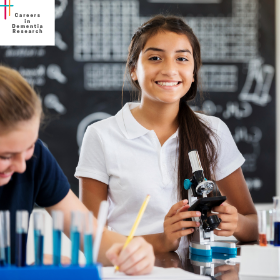 In my opinion the key to inspiring the next generation is for the younger generation to experience science and what it means to be a researcher in any context possible. One sure fire way for them to do this is to be granted access to work experience in a laboratory setting. The Education and Employers Taskforce published a report in 2011 that stated that work experience is valuable for clarifying student’s career aspirations, getting into university, academic attainment and future employment. They also stated that work experience can challenge the social stereotypical views on which occupations are accessible to different groups of people.
In my opinion the key to inspiring the next generation is for the younger generation to experience science and what it means to be a researcher in any context possible. One sure fire way for them to do this is to be granted access to work experience in a laboratory setting. The Education and Employers Taskforce published a report in 2011 that stated that work experience is valuable for clarifying student’s career aspirations, getting into university, academic attainment and future employment. They also stated that work experience can challenge the social stereotypical views on which occupations are accessible to different groups of people.
To attract the best minds to science, work experience also needs to be accessible for all, not only those in a privileged position who know somebody to get in the door. As mentioned above, a main pro to completing work experience is gaining a university place. University places, especially in the top universities are difficult to come by and anybody with work experience will gain an advantage. The UCAS Equality measure shows that 1 in 4 of the most advantaged quintile of English 18-year olds enter highly-selective universities, compared to only 1 in 50 pupils from the most disadvantaged quintile (The Brilliant Club).
To help with this goal, there are a number of organisations doing the hard work for you. The Brilliant Club provides placements in primary and secondary non-selective schools to give high-achieving pupils a chance to visit a university and complete a high-level assignment with a PhD tutor. I was one of these PhD tutors and can vouch for how successful the programme can be. As a PhD student, this is a great way to inspire the younger generation, gain teaching skills and earn some extra money.
For those scientists that don’t have much time or need to gain confidence, becoming an e-mentor with The Social Mobility Foundation can be very rewarding. The Social Mobility Foundation is a charity which aims to make a practical improvement in social mobility for young people. This gives the students a mentor to talk through different career options and it may be their first time ever speaking to a real scientist. I was an e-mentor whilst I was a research technician and during my PhD and it was great to feel like you were helping with minimal effort from you. I also had the opportunity to give a talk at a careers event which is another way to help inspire. Giving talks in schools during their British Science week or careers festivals is also another way to get involved.
This podcast from Nature Careers talks further to this topic, have a listen ⇓
Organisations such as In2Science and The Nuffield Foundation strive to go one step further and help you host students for a longer stint of work experience in your lab over the summer. This is a fantastic way to open up research to the younger generation and for more junior researchers, it is a fantastic way to gain experience in mentoring students without as much pressure. The students I have worked with have come for 2-4 weeks and have been highly motivated and keen to learn.
It is also possible for individual labs or departments to organise their own work experience programme. During my time working as a dementia researcher at Queen Square Brain Bank, UCL, I have taken on the role of Work Experience Lead and have changed the way work experience is offered to students. We provide work experience for GCSE, A level and undergraduate students. One thing I realised when I took over the role was that the students found it interesting but the sessions weren’t very practical and were quite dry as we were only providing a days experience meaning there wasn’t time for any real experiments. I therefore proposed changing it to a week’s work experience. This was met with apprehension as researchers are busy people and members of the lab thought it would be too intrusive to the work they were trying to do. However, to overcome this I set the students a different activity every few hours meaning that every researcher only had a minimal time they needed to be involved. By involving more people, the students could complete or see the more practical elements of science research whilst the researchers were able to keep up with their day to day activities.
“I enjoyed learning about the team’s personal experiences, where they went into detail about what lead them to their current jobs, the pros and cons to working within science and what the average daily life of a postdoc includes. I found this very useful, as I learnt that you can take many different paths to get to the same destination”
An example of our work experience programme timetable can be seen below:
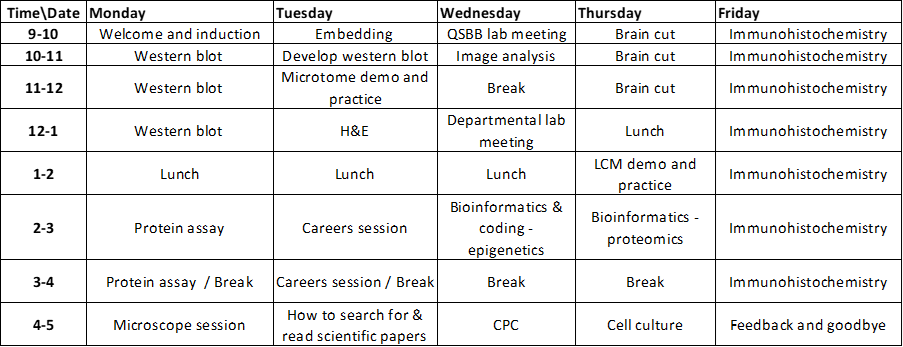
The COVID pandemic meant that we were unable to provide this type of work experience in 2020. Rather than leaving the students with nothing in a time where they would need experience more than ever, I created a virtual experience instead. This involved a number of researchers giving talks to showcase the skills and type of research that we were involved in. At the end of the morning we had a careers session with researchers in a range of positions and the students were able to a questions. We had over 300 attendees from all around the country and even some international students. This meant that we reached a far wider network than we would have, extending possibilities for many students. We had students attend from all socio-economic backgrounds and a diverse number of races. 16% of attendees were on free school meals or maintenance grants and 26% of students were the first generation in their family to want to attend university. 99% of attendees believed the event helped them towards achieving their goals with 50% very satisfied with the event and a further 46% satisfied. By holding the event online we were able to inspire so many more students from across the country. We aim to do the same again this year, with videos of the lab techniques so students can see them first hand.
“I particularly enjoyed the use of various speakers from different realms/areas, as it increased the breadth of learning and showed different perspectives.”
So, I hope I have convinced you to get involved in any shape or form and inspire the next generation of dementia researchers. Here are my top tips to providing a successful work experience event:
- Not too long but not too short (around a week or two works well)
- Use a range of researchers so each one doesn’t need to give much time
- Give experience from a wide range of backgrounds
- Allow students to get hands on with practical activities (safety and ethical considerations should still be considered)
- Gather feedback for your next event
Interested to see our virtual event or want to find out more, use the links below:
- Queens Square Brain Bank Virtual Work Experience Event Resources
- Alzheimer’s Research UK Data Statistics Hub
- Nuffield Foundation Research Placements
- Social Mobility Content
- The Brilliant Club
- In 2 Science UK
- Education & Employers – Work experience impact and delivery insights from the evidence
Author
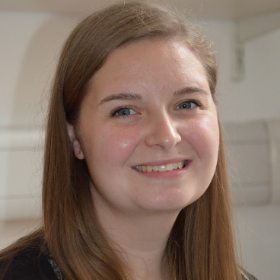
Dr Christina Toomey
Dr Christina Toomey is a Post-doctoral Research Associate at University College London and The Francis Crick Institute. Having worked as a neuroscientist for 10.5 years, she is still as passionate as she started. Christina is an active member of the lab, in addition to teaching undergraduates, MSc and PhD students. She also works on widening participation and public engagement, through UCL and representing Alzheimer’s Research UK. Outside the Lab, Christina is a Brownie Leader, Netball Player and Science Tutor.
Got a question for Christina? Reply in the box below

 Print This Post
Print This Post
